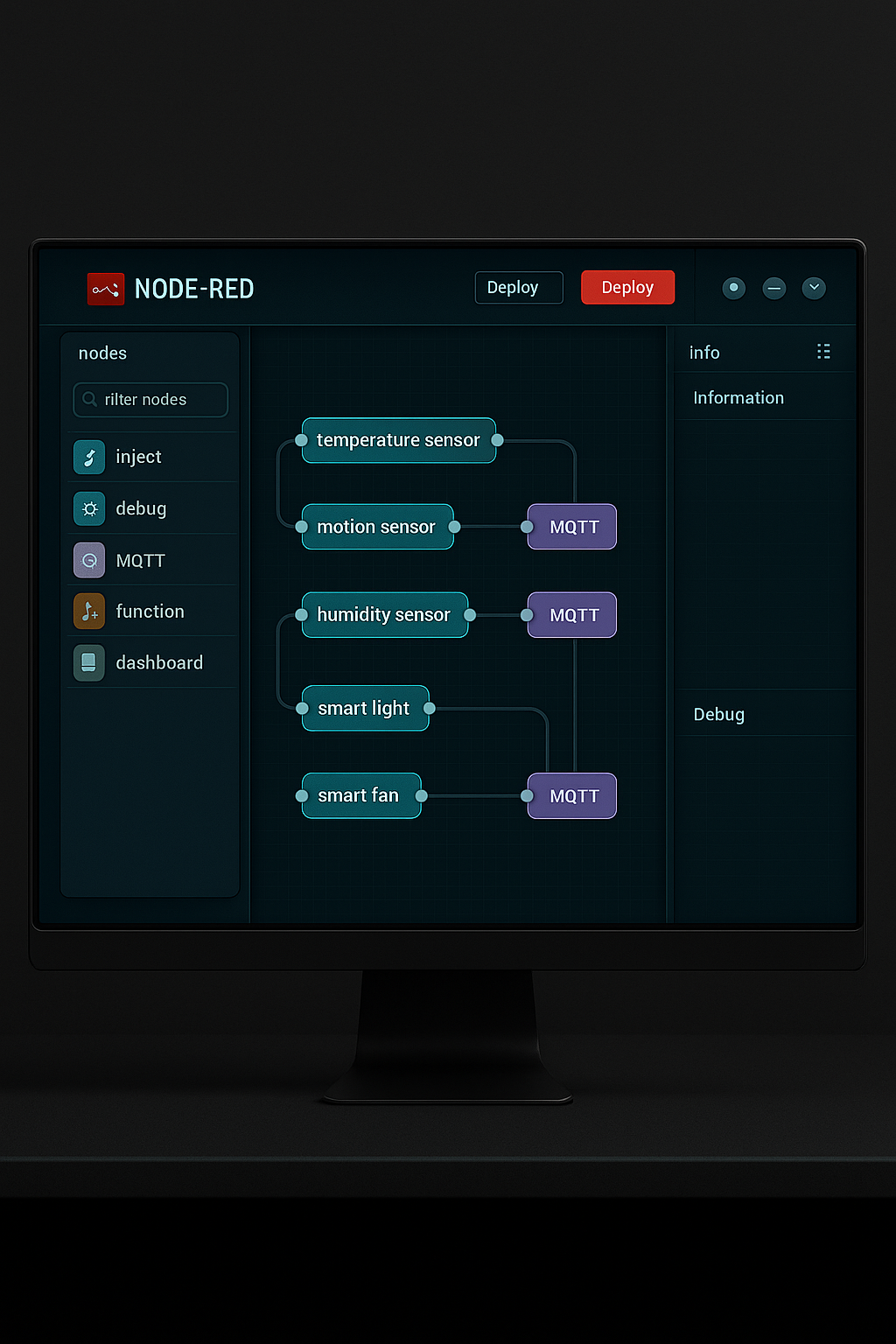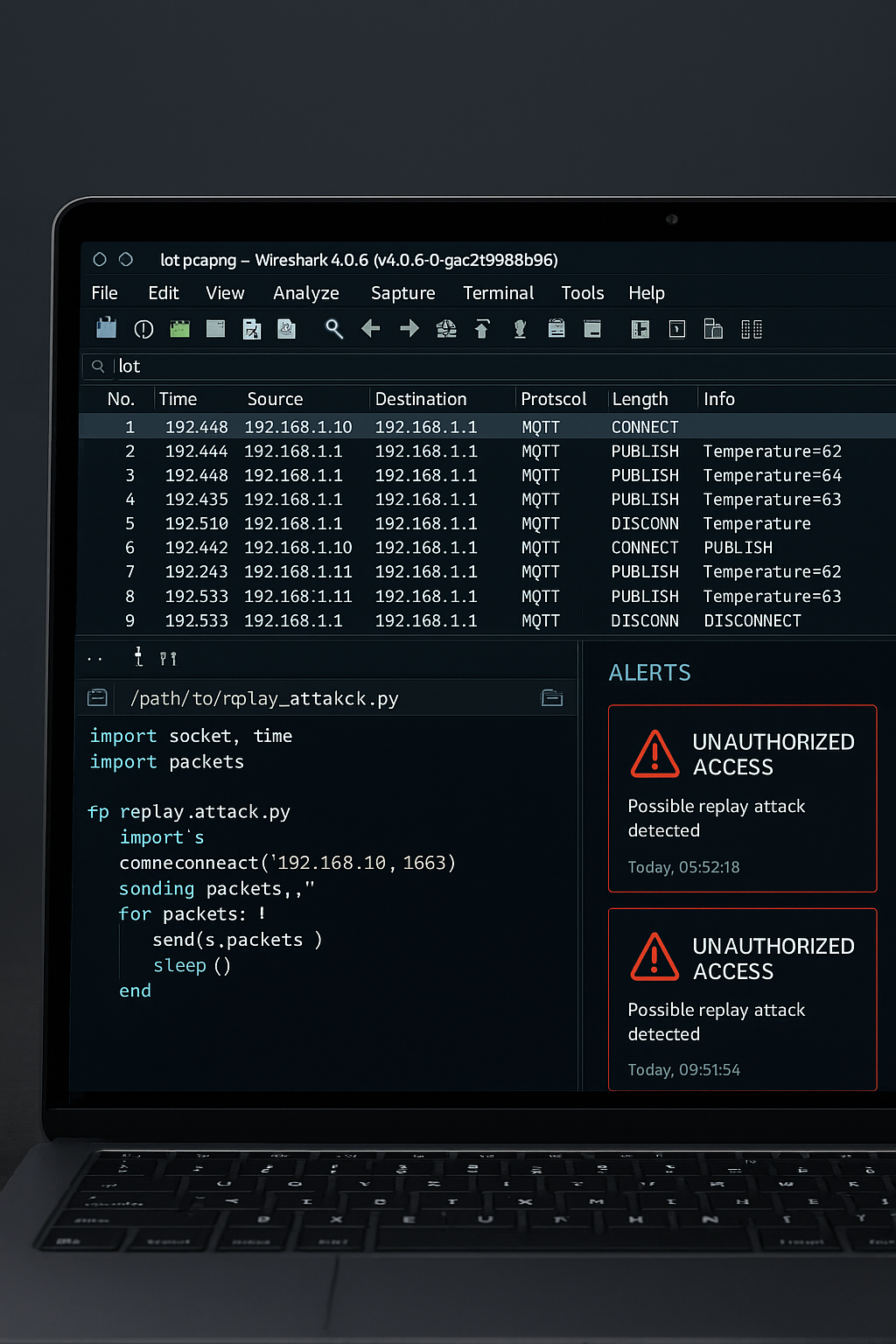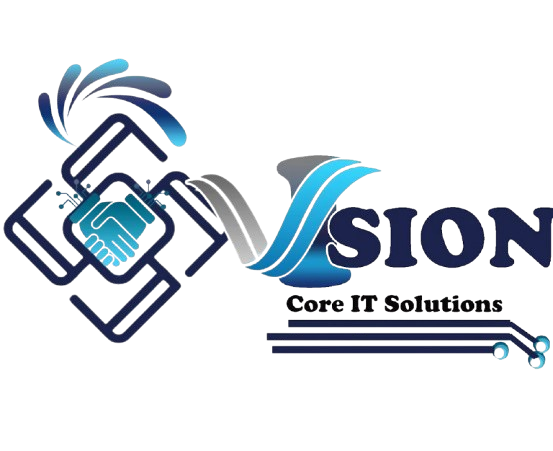What is Artificial Intelligence?
Artificial intelligence is an area of computer science, focuses on developing intelligent robots such as learning, problem solving, and decision-making. AI processes data, then identifies patterns, thereby adapting to replace human tasks. This revolutionizes industries once reliant on human intelligence.
AI is transforming industries, increasing efficiency, and providing novel answers to complicated issues. For organizations and IT professionals, staying current with AI trends is essential for unlocking its full potential in the digital era.
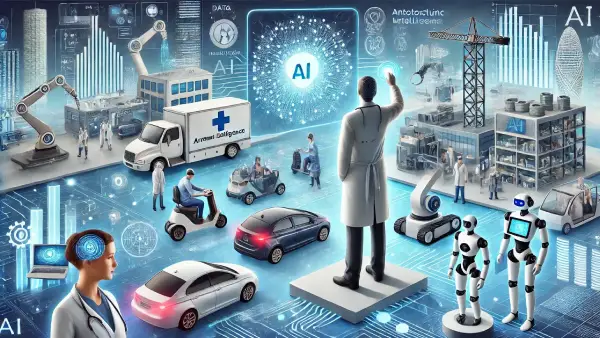
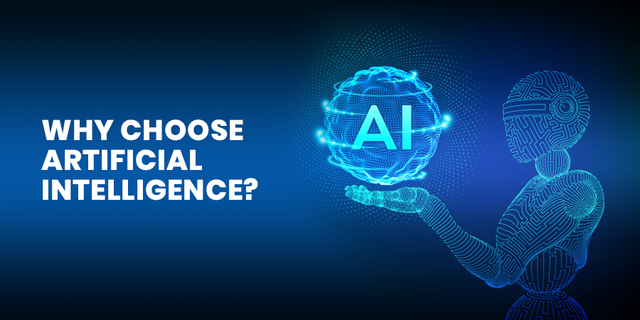
Why Choose Artificial Intelligence?
Enhanced Automation:AI automates industry processes, from manufacturing to banking, enhancing efficiency, reducing errors, and boosting productivity across diverse sectors.
Data Analysis and Insights: AI-powered data analytics can swiftly process big datasets, thereby generating useful insights. These insights can be used to inform strategic decision-making and enable predictive modeling.
Personalization: AI algorithms power application recommendation engines and personalization capabilities, adapting information and services to particular user preferences.Natural Language Processing (NLP): NLP enables machines to comprehend, interpret, and generate human language, paving the way for chatbots, virtual assistants, and automated customer service.
Medical Diagnostics: AI transforms healthcare by aiding accurate decisions with image recognition, predictive analytics, and disease detection tools. This transformation revolutionizes the field.
Autonomous Vehicles: Enhancing transportation AI is critical in the development of self-driving automobiles, improving safety and minimising accidents.
Cybersecurity: Artificial intelligence-powered cybersecurity systems can detect and mitigate cyber threats in real time, shielding critical data and networks from criminal activity.
Latest Trend in Artificial Intelligence
Machine Learning (ML): With neural networks, deep learning, and reinforcement learning, ML continues to progress, allowing AI systems to make increasingly accurate predictions.
AI Ethics and Bias Mitigation: There is a rising emphasis on correcting biases in AI algorithms and guaranteeing ethical AI development and implementation.
AI in Healthcare: AI is being utilised to improve healthcare results in areas such as medication discovery, patient diagnostics, telemedicine, and remote monitoring.
AI in Natural Language Processing (NLP): GPT-3 and BERT advanced NLP models are utilised for content generation, language translation, and sentiment analysis.
AI in Robotics: In industries such as manufacturing, agriculture, and healthcare, AI-powered robots are being used to perform tasks with increased precision and autonomy.
AI in Edge Computing: Artificial intelligence is moving closer to the edge, enabling real-time processing and decision-making on IoT devices while reducing latency.
AI in Finance: In the financial sector, AI-powered algorithms are utilised for algorithmic trading, fraud detection, credit scoring, and risk assessment.
Quantum AI: Quantum computing and AI merge to tackle complex problems beyond traditional computers’ limits, promising groundbreaking solutions.
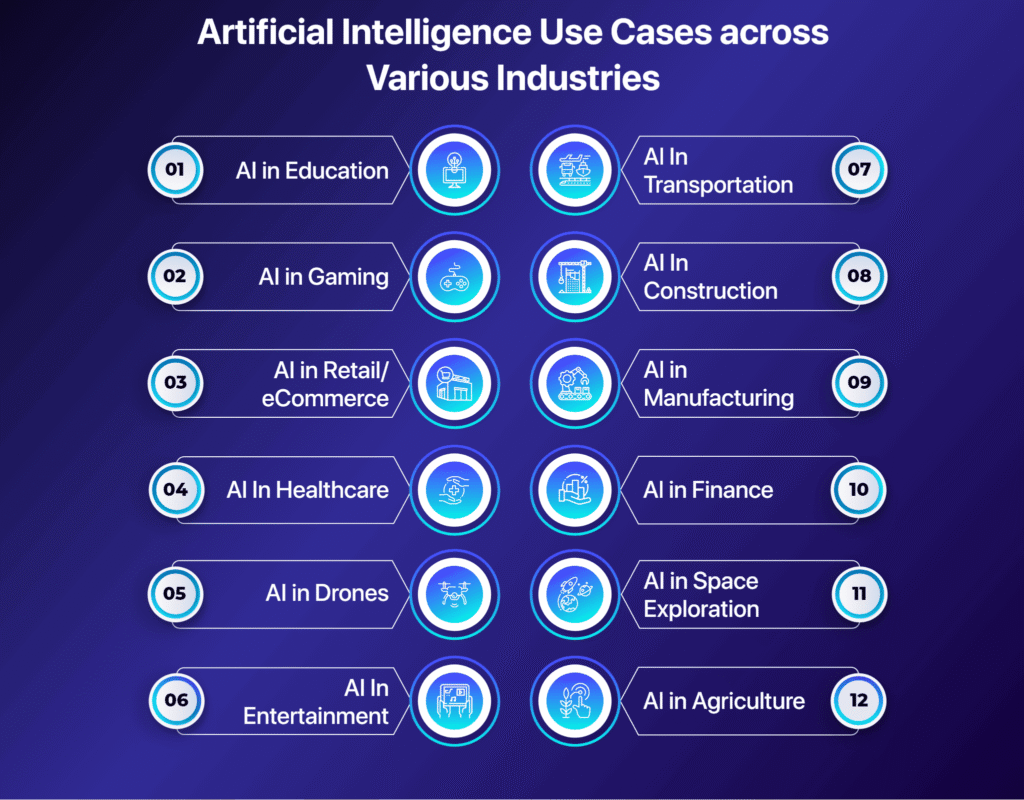
Our Projects
1. Fantasy Football Player Performance Analysis
This project investigates Fantasy Football data from the Premier League 2016–2017 season to analyze the factors influencing player performance. Using Python (pandas, matplotlib, and numpy), the dataset was cleaned, explored, and visualized to identify trends among top players.
The analysis includes:
Statistical breakdown of goals, assists, and fantasy points.
Comparison of player performance across different positions.
Visualization of top performers using bar charts and tables.
Insights into how real match performance impacts fantasy points.
This project demonstrates how data science techniques can be applied to sports analytics, providing valuable insights for Fantasy Managers in building their teams.


2: Transform Your Space with Augmented Reality
Our AR Interior Design App makes designing your dream space effortless and interactive. With just your smartphone, you can place virtual furniture and décor directly into your real environment, visualize styles instantly, and explore endless possibilities.
✨ Key Features
Real-time AR Visualization – Place sofas, tables, and décor items in your room before buying.
Personalized Design – Try different layouts, colors, and furniture styles instantly.
User-Friendly Interface – No professional expertise required, design like a pro in minutes.
Save & Share – Export your designs and share them with friends or professionals for feedback.




3. Face Recognition Attendance System
3. Face Recognition Attendance System
Mark Attendance with Just a Look
Our Face Recognition Attendance System makes attendance fast, secure, and completely touchless. Students can simply use their mobile camera or a web app to mark attendance in seconds. With built-in liveness detection, the system prevents spoofing and ensures only real users are marked present.
Key Features
One-Tap Face Attendance – Instant verification using a mobile or laptop camera.
Advanced Liveness Detection – Blink or movement prompts to stop photo/video spoofing.
Real-Time Sync – Attendance records automatically updated in the cloud.
History & Analytics – View daily/weekly reports, attendance percentage, and download records.
Multi-Platform Access – Mobile app for students, web dashboard for teachers/admins.
Data Security – Encrypted storage with role-based access to protect student privacy.
How It Works
Student logs in
Camera scans and verifies face with liveness check
Attendance is marked instantly
Record updates in real-time on the server
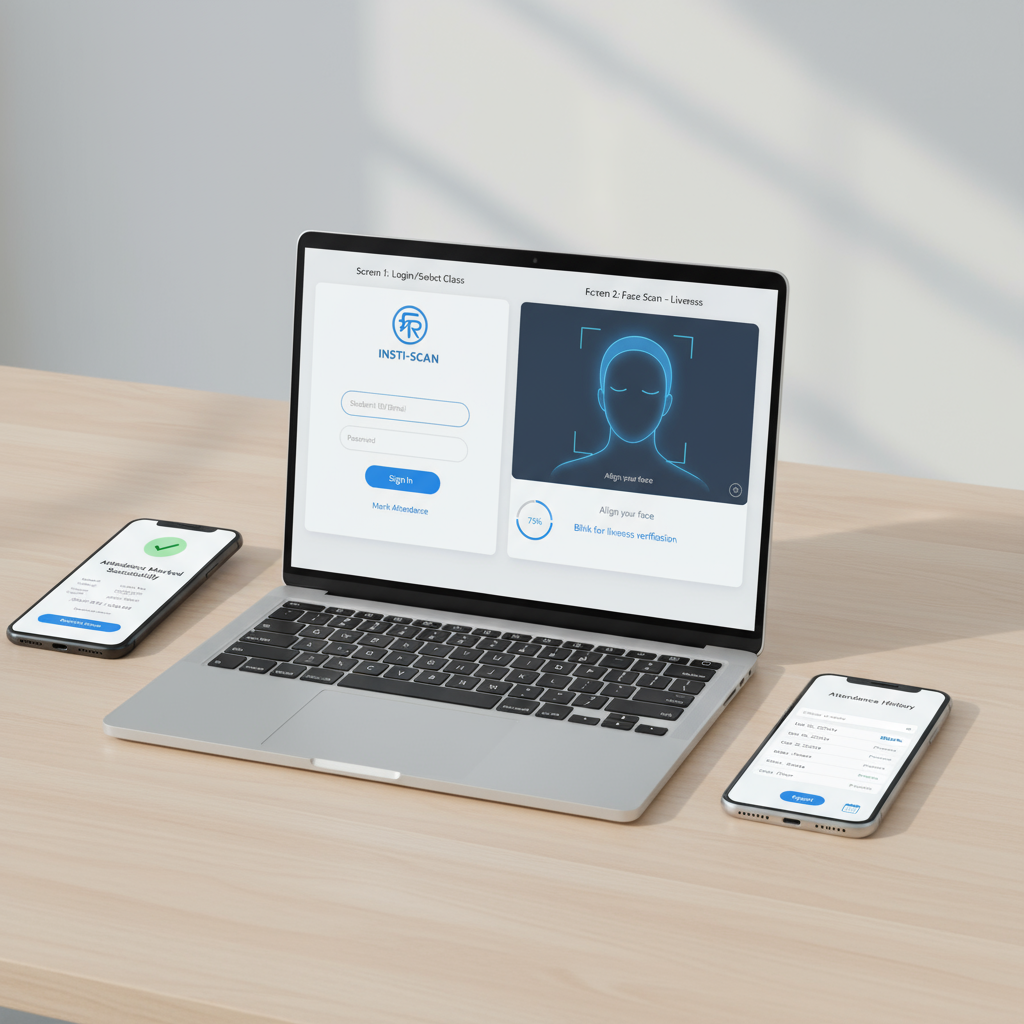




4. IoT Security & Automation Artefact
Secure. Monitor. Automate.
Our IoT Security and Automation Artefact demonstrates the complete lifecycle of smart device management—from simulation and attack testing to automation and real-time monitoring. It showcases how IoT environments can be vulnerable, secured, and efficiently controlled.
Key Features
1. Simulation Environment
Node-RED for device flows and automation logic
MQTT for secure device communication
Wireshark for capturing network packets and analyzing security impacts
Python scripts for attack simulation
Devices included: Temperature sensor, Motion sensor, Humidity sensor, Smart light, Smart fan
2. Attack Simulation
Without Security: Eavesdropping, replay attacks, and unauthorized access
With Security: Protected communication, access control, and blocked attacks
3. Automation & Dashboard
Automation rules for motion and temperature sensors to control devices automatically
Live device status and manual controls
Security panel for monitoring alerts
Performance panel with metrics and system analytics
Compliance panel for security and operational policies
Why Choose This Artefact?
Demonstrates real-world IoT vulnerabilities and security solutions
Shows interactive control and automation of smart devices
Provides detailed monitoring, performance, and compliance reports
Ideal for IoT learning, research, and practical cybersecurity demonstrations
